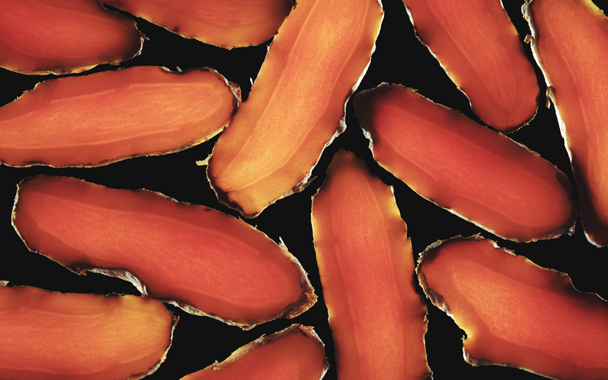Turmeric, the spice that gives yellow curry its color, is widely used in Asia not only for its earthy flavor but also for its therapeutic power. In ancient Hindu medicine, it was used to treat sprains and swelling. Modern medicine uncovered its anti-inflammatory and antioxidant properties, which have been used to treat everything from liver disorders and diabetic wounds to runny noses. Some bandage brands in India even contain turmeric as a disinfectant. Recently, scientists added another potential benefit to the list: preventing Alzheimer’s disease. Intrigued by the fact that the elderly population of India has one of the lowest rates of Alzheimer’s cases in the world, researchers at UCLA began looking at differences between the American and Indian diets and landed on turmeric. Turmeric, a staple in Indian cooking, is featured in curries, soups, and meat dishes. It’s as common in Indian cuisine as salt and pepper are in American cuisine. Bharat B. Aggarwal, a senior cancer researcher at M.D. Anderson Cancer Center in Houston, says the average Indian eats turmeric at every meal—about a gram a day. The UCLA group hypothesized that curcumin, a chemical in turmeric, might clean up or block the buildup of amyloid plaques, which scientists believe may contribute to Alzheimer’s.
The researchers began clinical trials of turmeric’s effect on the disease in 2004, and the results were astounding. In the first studies with mice, the amyloid plaques decreased by roughly 50 percent in those fed low doses of curcumin-rich food. UCLA recently completed a similar study with humans, as did the Chinese University of Hong Kong. The Hong Kong trial demonstrated that curcumin has no adverse side effects (unlike many Alzheimer’s drugs, which can cause gastrointestinal problems). They tested a range of doses and found that a high dose was not any more effective than doses as low as 1 gram. Because they weren’t able to look directly at the Alzheimer’s patients’ brains, the researchers had difficulty measuring curcumin’s effectiveness on amyloid plaques; however, they did find more amyloid proteins in the patients’ blood, suggesting that curcumin may have broken down some of the plaques.
Most interestingly, in UCLA’s human trial, Alzheimer’s patients were given high doses of curcumin in a supplement, and yet none of the chemical was absorbed. The researchers now believe that curcumin must first be dissolved through cooking in fat in order to be effective on the Alzheimer’s brain. This likely explains India’s low rate of Alzheimer’s, and it also accounts for curcumin’s success in mice that ate it in their food. According to UCLA researcher Sally Frautschy, this is why people should cook with turmeric rather than take supplements. However, researchers all over the country are having trouble getting funding for future trials, says Frautschy, even though this data strongly suggests that Alzheimer’s may be mostly preventable.
Future studies are needed to pinpoint the exact amount of turmeric that’s effective in fighting Alzheimer’s, but if you want to increase your curcumin intake in the meantime, it can’t hurt to try some new turmeric-rich recipes. Turmeric, whether used as fresh root or as dry powder, contains 5 percent curcumin. Studies have shown that turmeric from Curcuma Longa plants in Southeast Asia contain more curcumin than turmeric found in the plants of East Asia. (And be careful not to substitute curry powder for turmeric—some curry powders contain hardly any curcumin at all.)



 Pinterest
Pinterest


